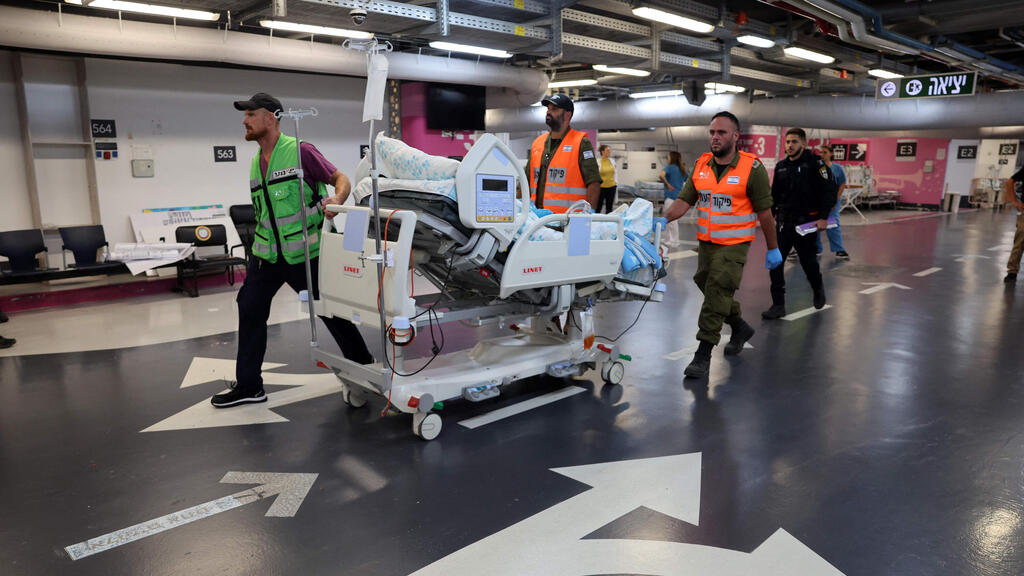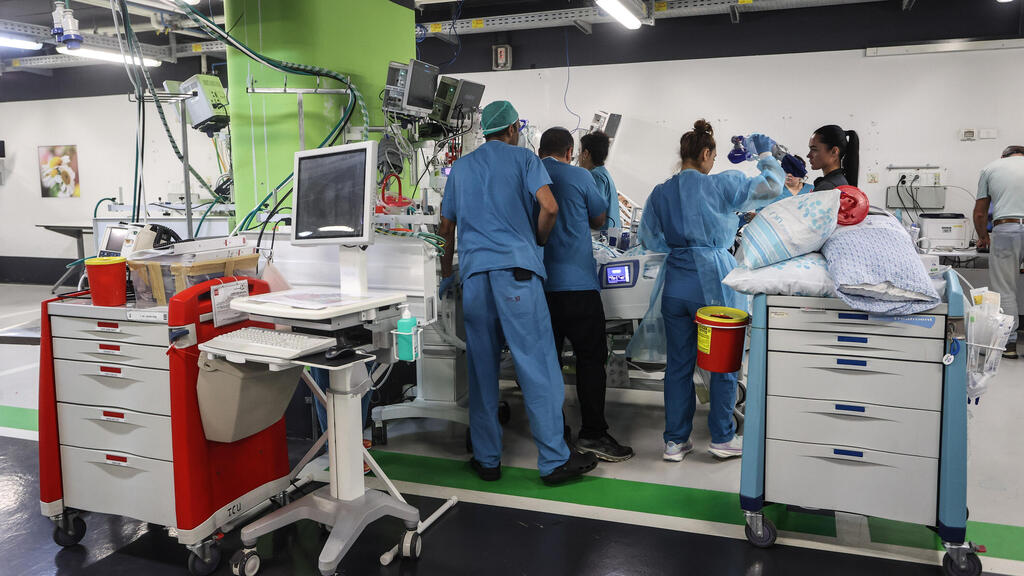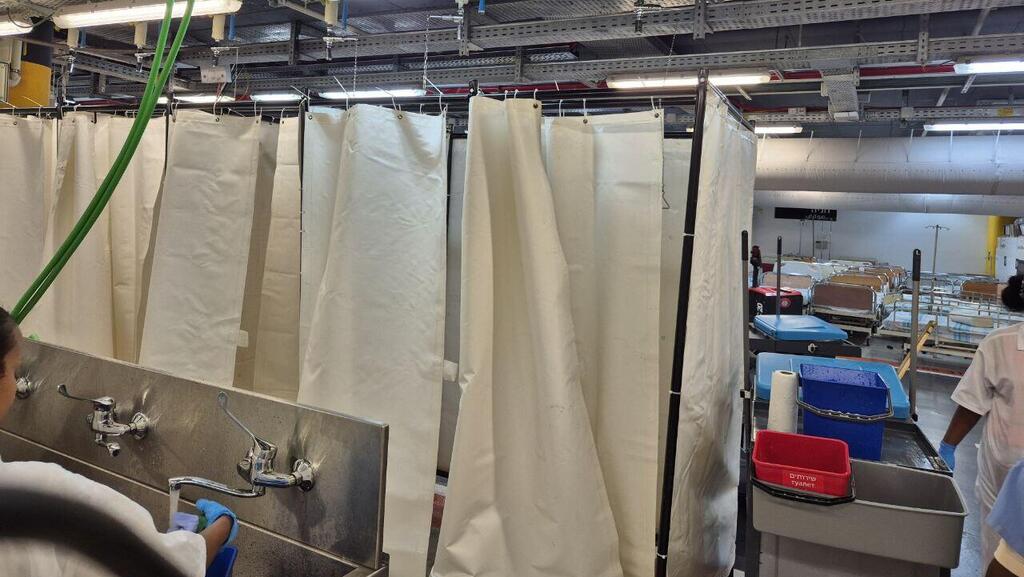Getting your Trinity Audio player ready...
Patients moved underground in Haifa hospital
(Gil Nechushtan)
The Rambam Health Care Campus in Haifa, Israel's largest hospital servicing the north, has become the world's largest underground hospital. On Sunday, after a directive from the Health Ministry, patients were moved from their wards to ensure their safety as Hezbollah rocket, missile and drone fire reached Haifa suburbs and the surrounding areas.
Rambam can accommodate over 2,000 hospital beds underground after adapting the car park to the needs of a hospital ward in an investment of 435 million shekels after a decision was made in the wake of the 2006 Second Lebanon War, when northern Israel and Haifa itself came under fire.
The Galilee Medical Center in Nahariya has been operating underground since October 7, with its underground complex housing hundreds of beds.
The operation to relocate 700 patients to the underground hospital began at noon on Sunday. Patients were transferred according to a prearranged plan, with each department moving to its designated underground area. At the same time, the hospital released non-urgent cases and patients who were not in need of hospitalization to "thin out" its patient load, discharging nearly 200 patients to free up beds in expectation of patients from other facilities in the north being transferred there.
The first to be relocated were patients from the intensive care unit (ICU), many of whom were on ventilators. The move was carried out by a Rambam medical team, assisted by Israeli Navy personnel, with family members accompanying their loved ones. Other departments, including the maternity ward, were moved soon after.
The hospital director highlights preparedness
Rambam’s director, Professor Michael Halberthal, said that after the 2006 Lebanon War, it became clear that the hospital needed to function under any conditions. "Our operations will continue here, with the goal of returning to full capacity as soon as possible."
Rambam has a total capacity of 2,200 beds: 1,200 in the third underground level, 800 on the second underground level, and around 200 in fortified areas above ground. "We can continue operating the hospital as normal. Our 24 operating rooms are fully fortified, as is our emergency department. In the next phase, we will fortify level minus one, which is used for ambulance unloading. The facility also includes a daycare for the children of staff, with capacity for 500 children."
He also said that they were working to prepare an additional underground level, with plans to accommodate two patients from two other facilities in the city.
Like other hospitals in the north Rambam has canceled elective surgeries and outpatient clinics remain closed. On Monday, the hospital will continue to operate in a limited capacity.







